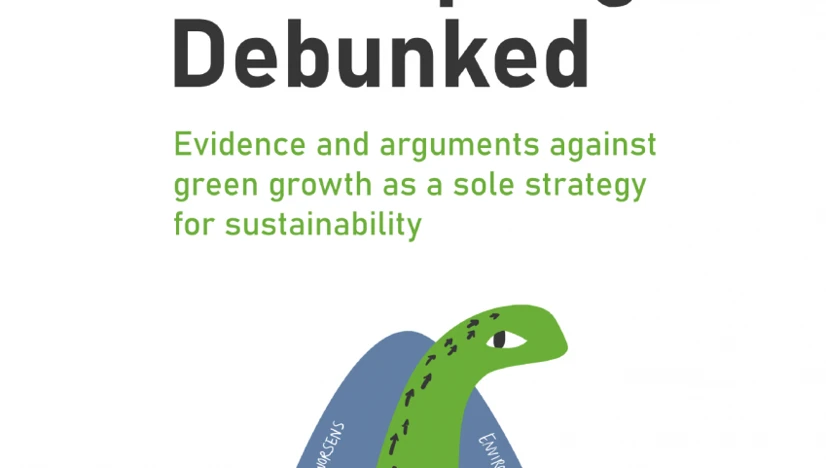Decoupling debunked: Evidence and arguments against green growth as a sole strategy for sustainability
European Environmental Bureau, 2019
Is it possible to promote both economic growth and environmental sustainability? This report reviews the empirical and theoretical literature to assess the validity of the decoupling-hypothesis. Regarding materials, energy, water, greenhouse gases, land, water pollutants, and biodiversity loss, the authors conclude that there is no empirical evidence supporting the existence of a decoupling of economic growth from environmental pressures on anywhere near the scale needed to deal with environmental breakdown. Decoupling is either only relative, and/or observed only temporarily, and/or only locally. From the theoretical literature, the authors provide seven reasons to be sceptical about the occurrence of sufficient decoupling in the future. In addition to the extensive summary of the recent literature, 'decoupling debunked' provides a great introduction into the decoupling hypothesis. All in all, the report makes clear that addressing environmental breakdown may require a direct downscaling of economic production and consumption in the wealthiest countries.
Comment from our editors:
Resarchers affiliated with institutions in France, Germany, Sweden, Finland, USA, and the Czech Republic composed this review for the European Environmental Bureau. The authors start out by clarifying the question "what is decoupling", before they review the literature around whether decoupling is happening and if yes, on which levels. After giving seven reasons why one should be sceptical about the possibility of absolute decoupling in the future, the authors end with a "farewell to green growth". Instead of only counting on efficiency policies, the authors propose to focus also on sufficency policies. In sum, the report gives a nuanced overview about the dimensions and issues of decoupling.

